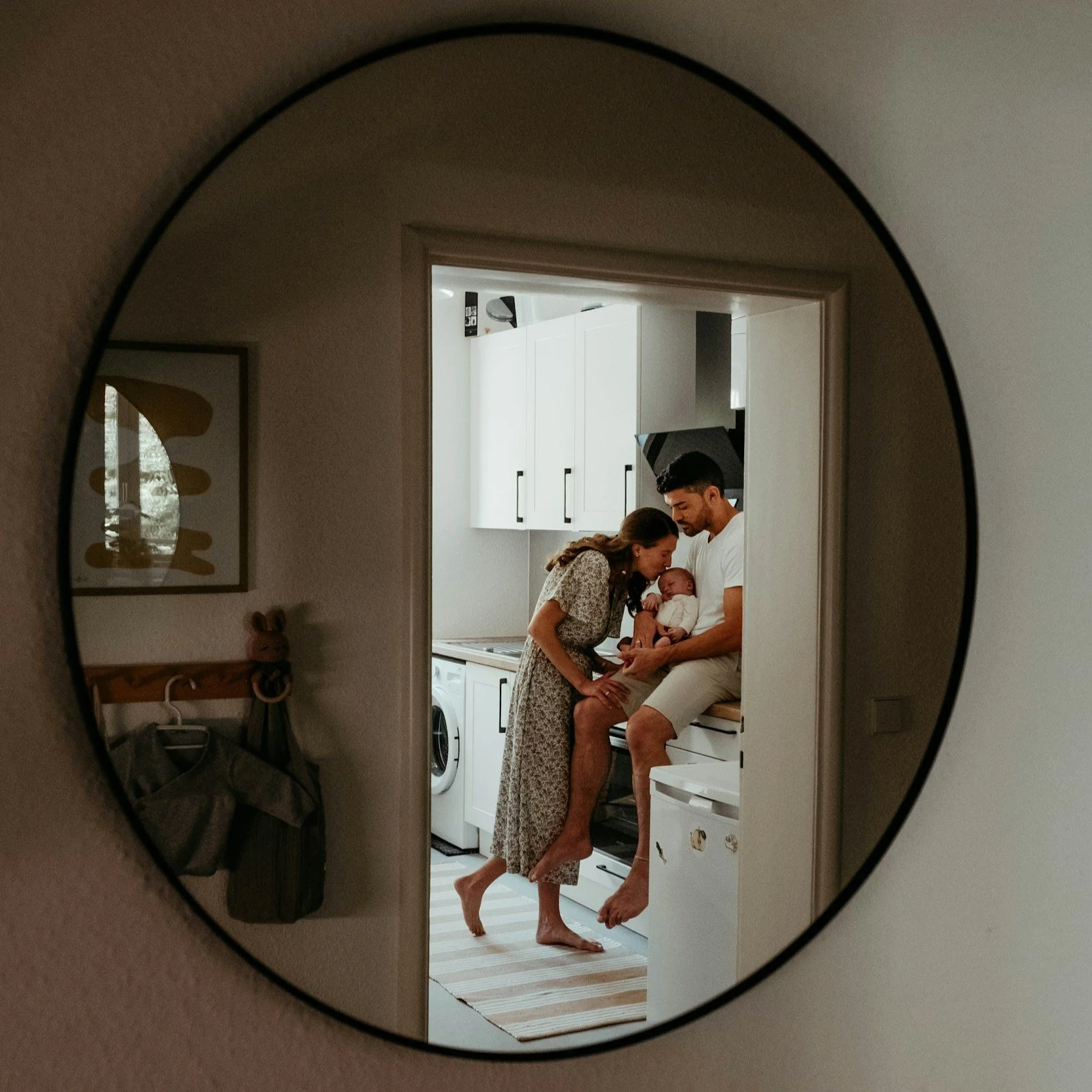Navigating Postpartum Anxiety
The Overlooked Challenge: Postpartum Anxiety
When people think of postpartum mental health, they often think of postpartum depression. But postpartum anxiety is just as real — and just as challenging — yet so many parents feel like they’re the only ones experiencing it.
If you’re a new parent lying awake at night with racing thoughts, constantly scanning for worst-case scenarios, or feeling a deep pit of dread you can’t shake — please know you are not alone. Postpartum anxiety is more common than many realize, and recognizing what’s happening is the first brave step toward healing.
What Does Postpartum Anxiety Look Like?
Some worry is normal — you just brought a tiny human into the world, after all! But postpartum anxiety is more than the usual new-parent concern. It can feel relentless, exhausting, and isolating. Here are some signs to watch for:
Excessive Worry
You might find your mind stuck on loops about your baby’s safety, your own competence, or what could go wrong. It can feel impossible to “just stop worrying,” even when others mean well by saying so.
Physical Symptoms
Your body might hold onto the anxiety, too. You may notice:
A racing heart or tight chest
Muscle tension that won’t let up
Difficulty sleeping, even when your baby does
Feeling constantly “on edge,” like you can’t relax
Intrusive Thoughts
Postpartum anxiety can also bring disturbing thoughts about worst-case scenarios — often unwanted and deeply upsetting. Many parents feel ashamed of these thoughts, fearing they say something about who they are. However, please know that they are a just symptom, not a character flaw.
Why This Happens — and That It’s Not Your Fault
Becoming a parent is one of life’s biggest transitions. Your hormones shift dramatically, sleep is disrupted, your sense of identity changes overnight, and cultural pressures can make you feel like you have to do it perfectly.
If you’re already someone who tends toward perfectionism, people-pleasing, or anxiety, postpartum can magnify these patterns. You might feel like you have to hold it all together for everyone else — yet inside, you’re barely holding on. Please hear this: You didn’t cause this. It’s not your fault. And you don’t have to carry it alone.
Gentle Ways to Begin Easing Postpartum Anxiety
Here are a few steps you can start with today:
Practice Mindfulness & Grounding
Your mind might spin with “what ifs” — bring it back to the present with grounding exercises.
Try placing your feet on the floor and notice what you feel. Take slow, intentional breaths. Even a few minutes can help calm your nervous system.
Seek Connection
Anxiety loves isolation — and shame grows in silence. Reach out to people who feel safe and supportive. Let them know how you’re really doing. You don’t have to explain away or minimize your feelings. If you’d rather talk to people who truly get it, consider a trusted therapist or a local support group.
Set Boundaries
Your nervous system is already working overtime. Protect it when you can. This might mean limiting social media that triggers comparison, saying no to extra visitors when you need rest, or asking for help with tasks that drain you. Boundaries are a gift to yourself and your baby.
Small Self-Care Moments Matter
Self-care doesn’t have to be an elaborate spa day — sometimes it’s a quiet shower, a five-minute walk outside, or just drinking your coffee while it’s still warm. Every little act of care is a reminder to your brain that you deserve support, too.
How Insightful Roots Therapy Can Help
We know how isolating and overwhelming postpartum anxiety can feel — and we also know you don’t have to navigate this alone. At Insightful Roots Therapy, we work with new parents every day who carry anxiety, perfectionism, and the heavy pressure to “do it all right.”
We hold space for you to share the thoughts you’re afraid to say out loud — without judgment. Together, we’ll help you understand what’s fueling your anxiety and gently untangle the fear, shame, or old patterns that keep you stuck.
Through approaches like mindfulness, Cognitive Behavioral Therapy (CBT), EMDR, and a trauma-informed lens, we tailor our work to you. You deserve relief and steadiness. You deserve to feel like yourself again.
You’re Not Alone — And You Don’t Have to Be Perfect
Postpartum anxiety doesn’t define you. It doesn’t mean you’re failing as a parent — it means you’re human, adjusting to one of life’s biggest transitions. With the right support, you can feel more grounded, connected, and confident in this season.
If you’re ready to take the next step, we’re here for you — judgment-free. Reach out today. Let’s find calm, together.


